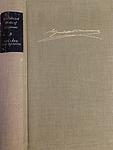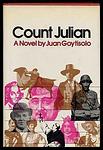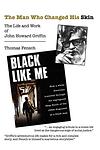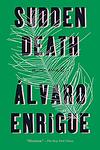The Greatest "Postmodern, Spain" Books of All Time
Click to learn how this list is calculated.
This list represents a comprehensive and trusted collection of the greatest books. Developed through a specialized algorithm, it brings together 300 'best of' book lists to form a definitive guide to the world's most acclaimed books. For those interested in how these books are chosen, additional details can be found on the rankings page.
Genres
Postmodernism is a literary movement that emerged in the mid-20th century, characterized by a rejection of traditional narrative structures and a focus on self-reflexivity and intertextuality. Postmodern literature often features fragmented narratives, unreliable narrators, and a blurring of the lines between reality and fiction. It is a genre that challenges the notion of a single, objective truth and instead embraces the idea of multiple perspectives and interpretations. Postmodern literature is often seen as a response to the modernist movement that preceded it, and it continues to be a popular and influential category for contemporary writers.
The "Spain" category of books refers to literature that is set in or about Spain, its culture, history, and people. This category includes a wide range of genres such as fiction, non-fiction, memoirs, travelogues, and historical accounts. Books in this category may explore the rich history of Spain, its diverse regions, its art and architecture, its cuisine, and its people. They may also delve into the country's political and social issues, its traditions, and its contemporary culture. Overall, the "Spain" category offers readers a fascinating glimpse into the vibrant and complex world of Spain.
Countries
Date Range
Reading Statistics
Click the button below to see how many of these books you've read!
Download
If you're interested in downloading this list as a CSV file for use in a spreadsheet application, you can easily do so by clicking the button below. Please note that to ensure a manageable file size and faster download, the CSV will include details for only the first 500 books.
Download-
1. The Moor's Last Sigh by Salman Rushdie
This novel follows the life of Moraes Zogoiby, the last in line of a once powerful and influential Indian family. Told from his perspective, Moraes recounts his family's history, starting with his grandparents and moving through to his own life. The narrative is filled with tales of love, betrayal, political unrest, and the supernatural. The protagonist's life is marked by a strange curse that causes him to age twice as fast as a normal human, adding a layer of urgency and tragedy to his story. The book explores themes of cultural identity, family legacy, and the passage of time.
-
2. Bartleby & Co by Enrique Vila-Matas
"Bartleby & Co" is a metafictional work that explores the theme of "writers of the No," authors who cease to write or never start at all. The narrator, an office worker on sick leave, uses footnotes to a nonexistent text to delve into the stories of these authors, including famous real-life figures. The book serves as a meditation on silence, refusal, and the nature of literature itself.
-
3. Our Lord Don Quixote by Miguel de Unamuno
The book presents a philosophical and introspective analysis of the classic literary character Don Quixote, delving into the existential and moral dimensions of his adventures. The author reflects on the nature of reality, the importance of ideals, and the interplay between sanity and madness, arguing that Quixote's chivalric quests and his refusal to concede to the limitations of his mundane world embody a profound and heroic affirmation of human imagination and spirit. Through this exploration, the work becomes a meditation on the human condition and the enduring power of fiction to inspire and give life meaning.
-
4. Rituals by Cees Nooteboom
"Rituals" is a philosophical novel that explores the lives of three men, each dealing with existential crises in post-World War II Netherlands. The narrative delves into their individual searches for meaning and purpose, their struggles with societal norms, and their attempts to establish personal rituals as a way to create order in a seemingly chaotic world. The book is a profound meditation on the human condition, examining themes of time, death, and the nature of reality.
-
5. Terra Nostra by Carlos Fuentes
This sprawling, complex novel is a rich tapestry of historical, philosophical, and literary references that explores the identity and culture of Latin America through a fantastical lens. Set primarily in 16th-century Spain during the reign of Philip II, the narrative weaves together the lives of historical figures and fictional characters, blending reality with myth and time travel. The story delves into themes of creation and destruction, the cyclical nature of history, and the quest for a utopian society, all while examining the consequences of colonialism and the search for a Latin American identity that reconciles its indigenous, African, and European heritage. The novel's intricate structure and dense prose challenge the reader to consider the past's impact on the present and future of a region with a tumultuous history.
-
6. Larva: Midsummer Night's Babel by Julián Ríos
"Larva: Midsummer Night's Babel" is a complex and innovative novel that explores the nature of language and the power of words. It's a narrative labyrinth that follows a group of characters through the streets of London on a midsummer night, as they engage in a series of intellectual debates and discussions. The story is filled with puns, word games, and literary references, and is written in a unique style that blends poetry and prose. The novel is also a satire of the literary world, with the characters often critiquing and parodying various literary styles and authors.
-
7. Count Julian by Juan Goytisolo
"Count Julian" is a novel that explores the themes of betrayal, revenge, and cultural identity. The protagonist, an exiled Spaniard, reflects on the history of his homeland, Spain, and its past conquests and losses. He identifies with Count Julian, a historical figure who invited the Moors to invade Spain as an act of revenge against the Visigothic King Roderic. The narrative is a critique of Spanish nationalism and cultural identity, as the protagonist dreams of a new invasion to cleanse Spain of its past and present sins. The book's complex narrative structure, nonlinear timeline, and poetic language make it a challenging but rewarding read.
-
8. A Change Of Skin by Carlos Fuentes
The novel explores the complex and surreal journey of a disillusioned Spanish historian who, along with his estranged wife, her American lover, and a Mexican guide, embarks on a metaphysical road trip across Mexico. As they confront personal and collective histories, the characters grapple with themes of identity, betrayal, and the search for meaning amidst the ruins of the Aztec and Spanish empires. The narrative weaves together reality and fantasy, questioning the nature of truth and the possibility of genuine transformation in a world where past and present are inextricably intertwined.
-
9. Dark Back Of Time by Javier Marías
"Dark Back of Time" is a reflective and metafictional narrative that blurs the lines between reality and fiction, weaving together personal anecdotes, literary criticism, and philosophical musings. The book explores the author's experiences following the publication of a previous novel, which unexpectedly affects the lives of individuals who see themselves reflected in its characters. As the author delves into the consequences of his writing, he examines the elusive nature of memory, the complex interplay between art and life, and the inevitable distortions that arise when reality is transmuted into literature. The work is a profound meditation on the power of storytelling and the enigmatic passage of time that alters perception and understanding.
-
10. Leaving the Atocha Station by Ben Lerner
The novel follows a young American poet on a prestigious fellowship in Madrid, Spain, where he grapples with his work, relationships, and sense of self. He struggles with his own perceptions of authenticity, both in his poetry and his personal life, while navigating the cultural and language barriers of a foreign country. The protagonist's experiences are marked by a constant tension between reality and artifice, as he questions the value and impact of his own art in the face of world events.
-
11. Sudden Death by Alvaro Enrigue
"Sudden Death" is a historical fiction novel that revolves around a fictional tennis match between the Italian painter, Caravaggio, and the Spanish poet, Francisco de Quevedo. The narrative jumps through time and space, touching on the conquest of the Americas, the political machinations of the Vatican, and the personal lives and rivalries of historical figures. The book uses this surreal and humorous setup to explore themes of art, power, and the chaotic, violent nature of the world.
-
12. Call Me Zebra by Azareen Van der Vliet Oloomi
"Call Me Zebra" is a novel about a young woman, who is the last in a line of self-proclaimed "anarchists, atheists, and autodidacts," embarking on a grand intellectual journey. After her father's death, she retraces the path they took as refugees from Iran to New York, immersing herself in literature and philosophy to cope with her grief. The protagonist's eccentric perspective and her passionate, often humorous, engagement with the works of literature make for a unique exploration of exile, art, and identity.
Reading Statistics
Click the button below to see how many of these books you've read!
Download
If you're interested in downloading this list as a CSV file for use in a spreadsheet application, you can easily do so by clicking the button below. Please note that to ensure a manageable file size and faster download, the CSV will include details for only the first 500 books.
Download










